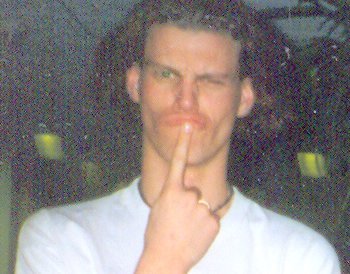Wright
I found this interchange wonderful from a questioner and NT Wright on Sin.
"Question: You often speak of Sin as a dominating power, and not just discrete acts of human wickedness. Some have accused you of downplaying personal sin, and its accompanying guilt. How do you conceive of the relationship between Sin as a world-dominating power and sin as acts of human wickedness?
ANSWER: it’s of course absurd to think that I downplay personal sin. Goodness, I know enough about it in my own life and am daily grateful for the kindness and faithful forgiving love of God in Christ. I have tried in my writings to track as faithfully as I can the way in which Paul himself uses ‘Sin’ sometimes as a power (e.g. Romans 7) and sometimes as specific actions of sin. The latter are clearly a manifestation of the former; though sometimes it seems he is using ‘Sin’ in a personified way where he could actually have said ‘Satan’. On the one hand, it is clear that all humans (other than Jesus) do in fact perform acts which constitute a refusal of the vocation to be genuinely, God-reflectingly human, and which therefore ‘miss the mark’ of that lovely, fully-human life which is not only glorifying to God in itself but which reflects that glory powerfully and creatively into the world. On the other hand, ‘Sin’ as a large-scale power has as its main aim the distortion, corruption and ultimately destruction of God’s good and beautiful and powerful world of creation. The link then becomes apparent: if Sin-as-a-power is to succeed, what is required is that human beings are deflected from their task of reflecting God’s glory and love into the world; in other words, if they default on the vocation to live as gladly-obedient, God-reflecting humans and so effectively hand power over either to elements of creation itself or to Sin which will only too readily use it..."
See the NT Wright link on the right for more stuff.
"Question: You often speak of Sin as a dominating power, and not just discrete acts of human wickedness. Some have accused you of downplaying personal sin, and its accompanying guilt. How do you conceive of the relationship between Sin as a world-dominating power and sin as acts of human wickedness?
ANSWER: it’s of course absurd to think that I downplay personal sin. Goodness, I know enough about it in my own life and am daily grateful for the kindness and faithful forgiving love of God in Christ. I have tried in my writings to track as faithfully as I can the way in which Paul himself uses ‘Sin’ sometimes as a power (e.g. Romans 7) and sometimes as specific actions of sin. The latter are clearly a manifestation of the former; though sometimes it seems he is using ‘Sin’ in a personified way where he could actually have said ‘Satan’. On the one hand, it is clear that all humans (other than Jesus) do in fact perform acts which constitute a refusal of the vocation to be genuinely, God-reflectingly human, and which therefore ‘miss the mark’ of that lovely, fully-human life which is not only glorifying to God in itself but which reflects that glory powerfully and creatively into the world. On the other hand, ‘Sin’ as a large-scale power has as its main aim the distortion, corruption and ultimately destruction of God’s good and beautiful and powerful world of creation. The link then becomes apparent: if Sin-as-a-power is to succeed, what is required is that human beings are deflected from their task of reflecting God’s glory and love into the world; in other words, if they default on the vocation to live as gladly-obedient, God-reflecting humans and so effectively hand power over either to elements of creation itself or to Sin which will only too readily use it..."
See the NT Wright link on the right for more stuff.

0 Comments:
Post a Comment
<< Home